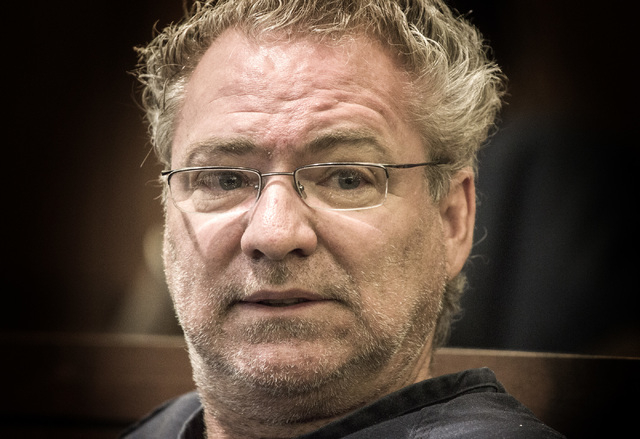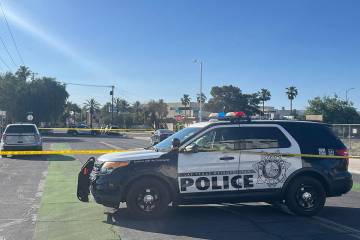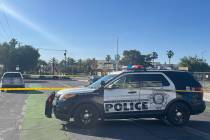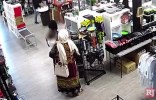Child sex assault case highlights CCSD use of cameras on buses
The arrest of a veteran school bus driver in connection with the sexual assault of small children on his route raised questions about the safety of the roughly 90,000 Clark County School District students who ride the bus twice a day.
Michael Banco, 55, faces 19 felony charges: three counts of sexual assault against a child under the age of 14; eight counts of lewdness with a child under the age of 14; four counts of first-degree kidnapping and four counts of first-degree child abuse or neglect. Banco was responsible for transporting about 20 students with special needs on a route that took him all over the valley.
The biggest challenge district bus drivers will face in the coming months is regaining the public’s trust, said district transportation director Shannon Evans while discussing the school bus surveillance program.
“It’s very disheartening,” Evans said last week. “It really hit close to home.”
Las Vegas police said they were able to verify the allegations against Banco using surveillance camera recordings from the school bus Banco drove.
As a special education bus driver, Banco — called “Mr. Mike” by students — would place children in various seats and buckle them individually. On three separate days, Banco is seen on surveillance footage molesting and assaulting children at the back of the bus before he drops them off after school, according to police records.
The footage from the bus will play a key role in the prosecution’s case, but the incident also pointed to gaps in the district’s bus surveillance program.
Evans said between 30 and 35 percent of the district’s 1,750 buses, roughly 600, came equipped with Gatekeeper 304 SD cameras when they were purchased in 2010. Fifty new buses are set to join the district’s fleet in next 35 to 40 days and will also come with cameras, Evans said. And the district buys more special education buses every year — Evans said the district has cameras in 401 special education buses already.
Each bus’ surveillance system comes with a 64 GB memory card that holds about 10 days worth of footage, depending on the length of the bus route. The cameras continue to record for up to 30 minutes after the bus is turned off, Evans said. With the exception of a handful of buses that have exterior cameras in the rear for backing out, the buses each have four interior cameras monitoring the students.
The district has three staff members devoted to reviewing the footage, a number that Evans said is intentionally kept low to protect students’ privacy rights. But the volume of raw footage and the number of complaints means that staff reviews are primarily a reaction to a reported incident.
The district wants to expand the surveillance program to all of the district’s school buses, but it has to be done in increments. Evans said it would cost more than $2.3 million to do it all at once. And more cameras would require additional staff to watch the footage. Evans said her staff is currently looking into grants and other sources of funding to get cameras on every bus.
The cameras are an important tool. The footage can be used to investigate incidents of fighting or bullying between students or to verify or disprove allegations against staff, she said. Drivers transport as many as 90 students and don’t have eyes in the back of their heads, but Evans said bus incidents reported to the district are fully investigated.
Staff members review 10 days of footage for every complaint they receive, which is enough to identify problems or patterns on the buses, Evans said.
Despite the presence of multiple cameras within the bus, police records indicated the view of some of Banco’s actions were obstructed. The cameras, however, record sound as well as video, Evans said.
Karen Taycher, executive director of Nevada PEP, said she can’t recall another incident in which special education students were assaulted on a bus, but she has heard from multiple parents who feared for the safety of their children. Nevada PEP is a nonprofit organization that provides information, services and training to Nevada families of children with disabilities.
Taycher said cameras in school buses are great for documenting abuse that has occurred, but she would like to see to more preventative measures, including having additional aides on special education buses.
“The district does take action when they hear about possible abuse,” she said. “But we’d like to prevent the occurrence.”
Contact Wesley Juhl at wjuhl@reviewjournal.com and 702-383-0391. Find him on Twitter: @WesJuhl.




























